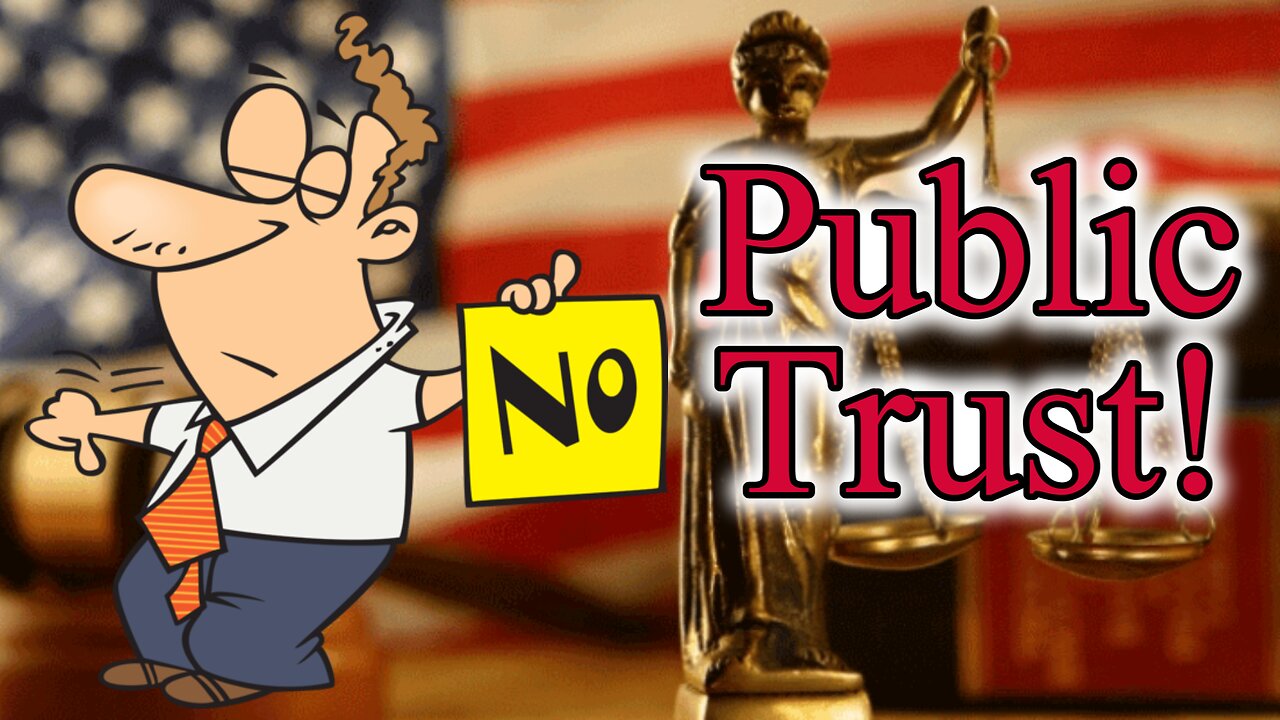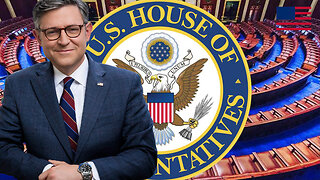Premium Only Content

The Sheriff and Ballot Handling
Eroding public trust? You decide.
Are County Sheriff's supposed to handle actual ballots, especially when they are on the ballot for re-election?* And, what does Florida Law say about Public Record Requests?**
*This is what Florida Law says about Law Enforcement at Polling Places when voting occurs:
The 2023 Florida Statutes (including Special Session C)
Title IX
ELECTORS AND ELECTIONS
Chapter 102
CONDUCTING ELECTIONS AND ASCERTAINING THE RESULTS
102.101 Sheriff and other officers not allowed in polling place.—A sheriff, a deputy sheriff, a police officer, a special officer appointed pursuant to s. 102.091, or any other officer of the law is not allowed within a polling place without permission from the clerk or a majority of the inspectors, except to cast his or her ballot. Upon the failure of any such officer to comply with this section, the clerk or the inspectors must make an affidavit against the officer for his or her arrest.
History.—s. 58, ch. 4328, 1895; GS 239; RGS 284; CGL 340; s. 6, ch. 26870, 1951; s. 4, ch. 65-129; s. 25, ch. 77-175; s. 599, ch. 95-147; s. 25, ch. 2022-73.
Note.—Former s. 99.41.
102.031 (3)(a) No person may enter any polling room or polling place where the polling place is also a polling room, or any early voting area during voting hours except the following:
1. Official poll watchers;
2. Inspectors;
3. Election clerks;
4. The supervisor of elections or his or her deputy;
5. Persons there to vote, persons in the care of a voter, or persons caring for such voter;
6. Law enforcement officers or emergency service personnel there with permission of the clerk or a majority of the inspectors;
**This is what Florida Law says about Public Record Requests:
119.01 General state policy on public records.—
(1) It is the policy of this state that all state, county, and municipal records are open for personal inspection and copying by any person. Providing access to public records is a duty of each agency.
(2)(a) Automation of public records must not erode the right of access to those records. As each agency increases its use of and dependence on electronic recordkeeping, each agency must provide reasonable public access to records electronically maintained and must ensure that exempt or confidential records are not disclosed except as otherwise permitted by law.
(d) Subject to the restrictions of copyright and trade secret laws and public records exemptions, agency use of proprietary software must not diminish the right of the public to inspect and copy a public record.
(e) Providing access to public records by remote electronic means is an additional method of access that agencies should strive to provide to the extent feasible. If an agency provides access to public records by remote electronic means, such access should be provided in the most cost-effective and efficient manner available to the agency providing the information.
(f) Each agency that maintains a public record in an electronic recordkeeping system shall provide to any person, pursuant to this chapter, a copy of any public record in that system which is not exempted by law from public disclosure.
-
 LIVE
LIVE
The Quartering
3 hours agoCybertruck Psyop? Fishy New Orleans Video & FBI BUSTED In Major Coverup!
4,130 watching -
 LIVE
LIVE
Tucker Carlson
2 hours agoBernard Hudson: New Orleans Attack, Cybertruck Explosion, CIA Corruption, & Tusli Gabbard
10,881 watching -
 LIVE
LIVE
GingerDonkey
2 hours agoThe DONKEY Barn is open for business
219 watching -
 40:12
40:12
jessedalba
15 hours agoRumble Movie:“Riding an Electric Harley 2,500 Miles to Sturgis… What Could Go Wrong?!”
1385 -
 9:10
9:10
Russell Brand
1 day agoThey Didn't Expect This
113K264 -
 10:22
10:22
Dr Disrespect
2 days agoDR DISRESPECT - 2024 RECAP
39.1K75 -
 18:03
18:03
Neil McCoy-Ward
5 hours agoThe US 'INCIDENTS' Are just The Tip Of The Iceberg...
7292 -
 1:33:19
1:33:19
Tactical Advisor
4 hours agoThe Vault Room Podcast 007 | Terrorist Attacks Update
36.9K2 -
 18:08
18:08
ROSE UNPLUGGED
22 hours agoAn Air of Optimism for 2025: Can You Feel It?
4191 -
 LIVE
LIVE
The Charlie Kirk Show
1 hour agoThe 2025 Speaker Election + DEI FBI + Britain's Grooming Gangs | Gaetz, Gilliam, Marshall | 1.3.2025
12,820 watching